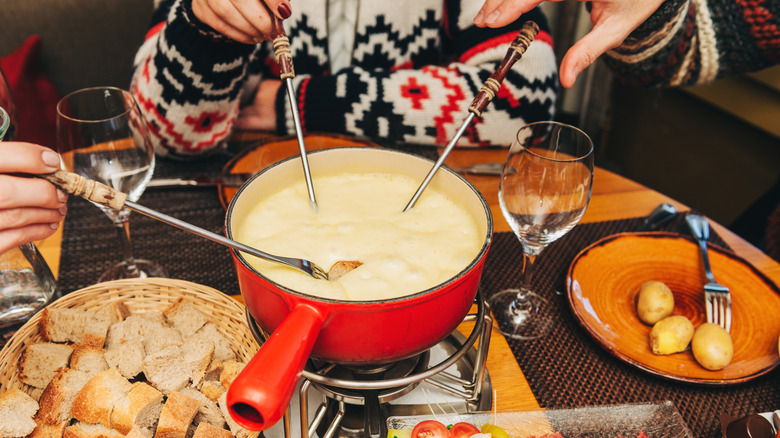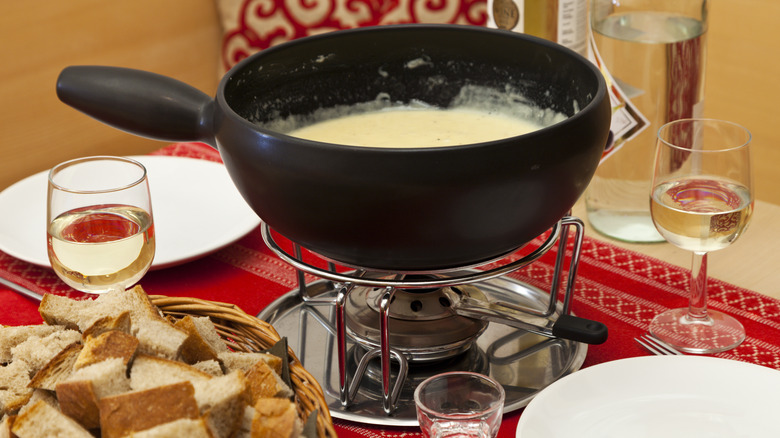The Reason You Shouldn't Let Cheese Fondue Get Too Hot
Fondue for two, a tagline from a joke on "Glee" (via YouTube), still has a nice ring to it. And when it comes to what seems like a romantic date night activity, fondue is an option where anyone without a lactose intolerance can't go wrong. In fact, the restaurant franchise Melting Pot bets its income on it, serving up continuously new variations on its original "swiss cheese fondue, beef fondue and a chocolate fondue dessert" since 1975 (per the Melting Pot website).
According to The Spruce Eats, the most common understanding of fondue is a dish consisting of melted cheeses combined with wine, cognac or brandy. It's served communally, from a ceramic pot containing the cheese warmed from below to keep it melted, and enjoyed by dipping chunks of bread at the ends of long forks into the cheese and then eating them. And although it may sound easy, there is a delicate art involved in how it is heated, because overheating could cause some unpleasant issues.
Why fondue hasn't worked for you
Beyond the obvious burning of your mouth if you eat too-hot cheese (or anything, really) too quickly, there are other issues that come with heating fondue too high. It has to do with the science of cooking and ensuring you get that rich, creamy texture. According to Serious Eats, the best way to make fondue is to start with a few essentials like wine or citric acid — its acids prevent clumping and stringiness — good and flavorful cheese (they recommend a 50-50 blend of two options), and a measured approach to heating.
According to the site, if you scale the heat too high, your cheese with break, making fondue less appetizing for you and more enticing for the trash bin. A better method is to use a double boiler, which provides even heat that doesn't get too high over prolonged exposure times. They note, "the cheeses in this fondue have a melting point around 150 F; let them get much hotter and their proteins will press into each other, causing the fondue to break." So next time you're making fondue for yourself (or for two), make sure to keep an eye on those breaking points.

